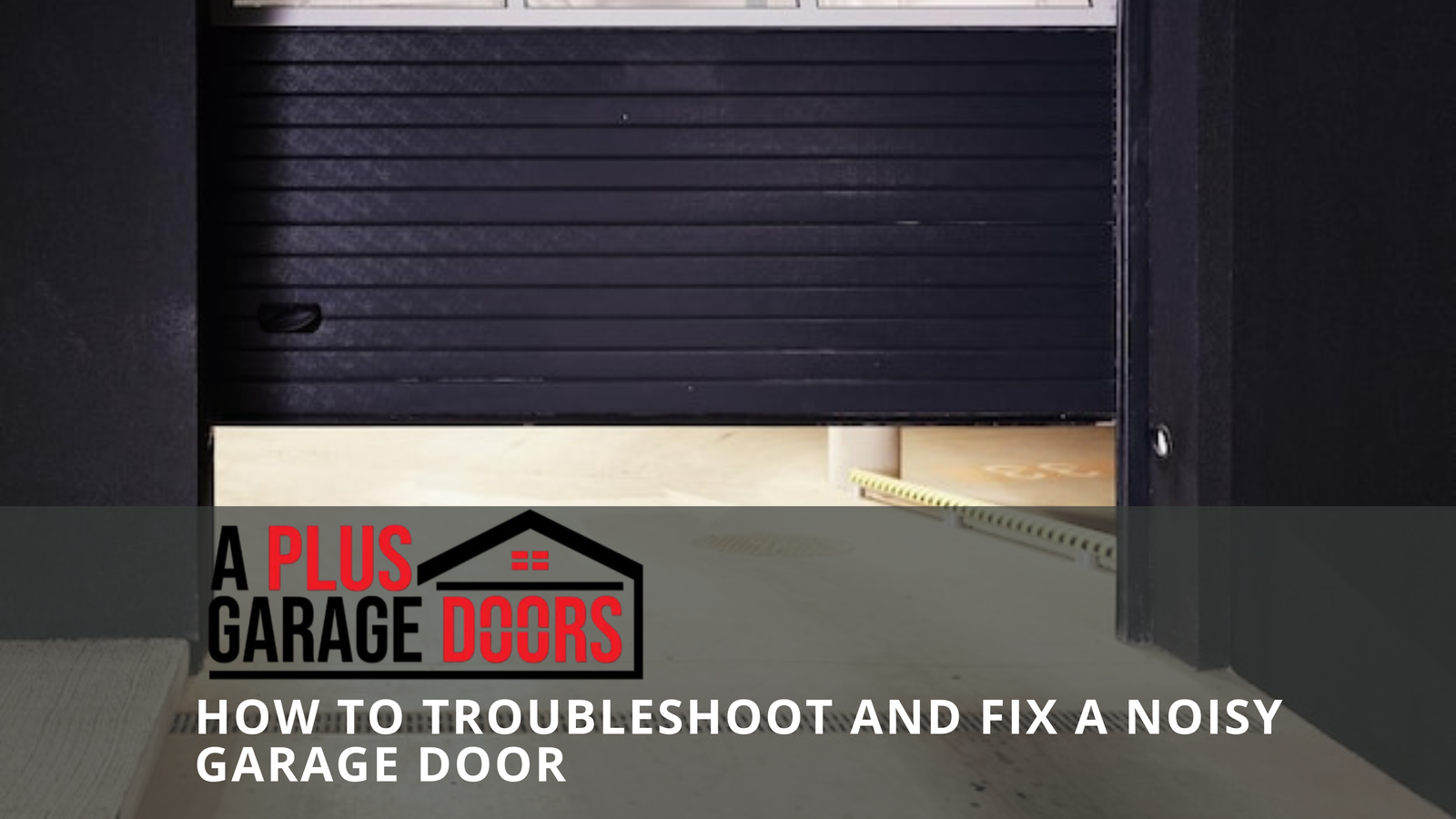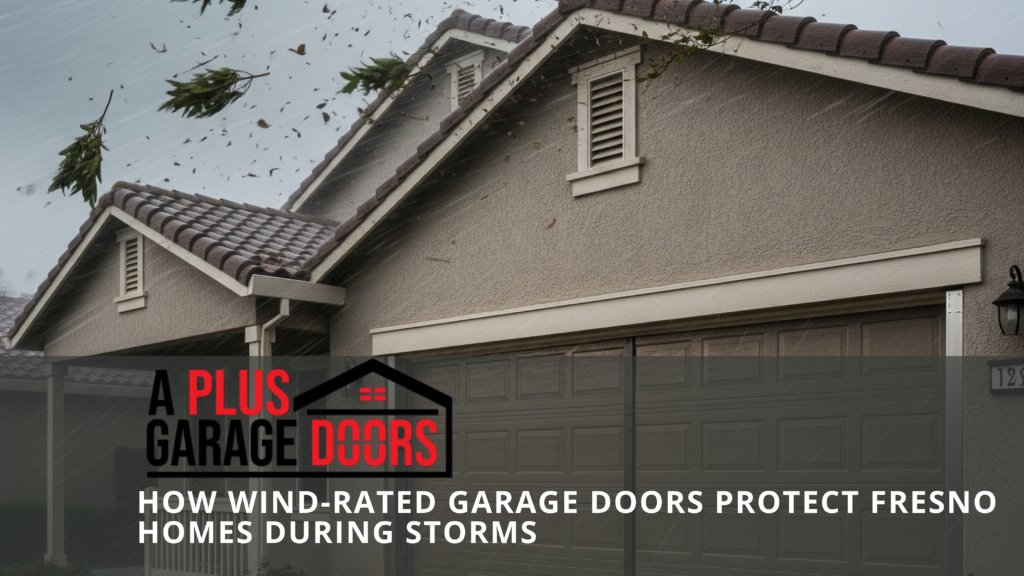Garage doors are an essential part of any home, providing security and convenience. However, when they become noisy, it can be both annoying and a sign of underlying issues. A noisy garage door can be caused by various factors, ranging from simple lubrication problems to more complex mechanical issues. Understanding the common causes of garage door noise and how to fix them can save you time, money, and the hassle of hiring a professional for minor repairs. In this guide, we’ll walk you through how to troubleshoot and fix a noisy garage door.
1. Identify the Type of Noise
Before addressing the noise, it’s important to identify the type of sound your garage door is making. Different sounds point to different issues:
- Squeaking or squealing: Often caused by dry, worn-out rollers or a lack of lubrication.
- Grinding: May indicate an issue with the door’s tracks, which could be dirty, misaligned, or obstructed.
- Banging or rattling: This could mean loose hardware, worn-out springs, or an unbalanced door.
- Thumping: Might suggest issues with the springs or cables.
Understanding the sound your garage door makes will help you pinpoint the exact cause of the noise and determine the best course of action for repairs.
2. Lubricate Moving Parts
One of the most common causes of a noisy garage door is friction between the moving parts. Regular lubrication is essential to keeping the door running smoothly and quietly. If your door squeaks or squeals when it opens or closes, it’s likely that the rollers, hinges, or tracks are dry and in need of lubrication.
How to Fix It:
To fix this issue, start by using a silicone-based lubricant or garage door lubricant (avoid WD-40 as it can attract dirt). Spray the lubricant onto the moving parts, including the rollers, hinges, springs, and tracks. Be sure not to lubricate the tracks themselves, as this can cause the door to slip off its tracks. Wipe away any excess lubricant to prevent buildup.
3. Check the Rollers
Over time, the rollers that help your garage door move smoothly can become worn, cracked, or damaged. This can cause a grinding noise as the door moves along the tracks. If your garage door makes a grinding or rattling noise, inspect the rollers to see if they need replacing.
How to Fix It:
If you notice any damage to the rollers, it’s best to replace them. You can either replace the individual rollers or the entire roller assembly. This may require removing the garage door from its tracks, so if you’re not comfortable doing this yourself, it’s recommended to call a professional.
4. Inspect the Tracks for Obstructions
Another potential cause of noisy garage doors is debris or obstructions in the tracks. Dirt, dust, or even small objects can cause the door to make a grinding or scraping noise as it moves up and down the tracks. If left unchecked, obstructions can also cause the door to become misaligned or get stuck.
How to Fix It:
First, inspect the tracks for any visible debris. If you find any, use a cloth or soft brush to clean the tracks. Make sure to also check for any bends or misalignments in the tracks, as this can affect the smooth operation of the door. Use a level to check that the tracks are aligned properly, and adjust them if necessary.
5. Tighten Loose Hardware
Loose hardware is another common cause of a noisy garage door. Over time, bolts, nuts, and screws can become loose due to the constant movement of the door. Loose components can rattle or cause banging noises, especially if the door is under tension from the springs or cables.
How to Fix It:
Inspect all the hardware, including bolts, nuts, and screws, and tighten any that are loose. Pay special attention to the tracks, rollers, and the garage door opener. Make sure that the door is securely attached to its track and that all fasteners are tightened to prevent further rattling or noise.
6. Check the Springs for Wear and Tear
Garage door springs are under significant tension and can wear out over time. If your garage door makes a thumping or banging noise, it could be a sign that the springs are worn or damaged. Worn springs can also lead to an unbalanced door, which causes additional strain on the opener and other components.
How to Fix It:
If you suspect the springs are the problem, it’s best to leave this repair to a professional. Tensioned springs can be dangerous to handle without the proper training and tools. A professional can safely replace the springs and ensure the door is balanced and functioning properly.
7. Balance the Door
An unbalanced garage door can cause unnecessary strain on the opener, tracks, and springs. If the door is uneven, it may make a thumping or banging noise when opening or closing. An unbalanced door can also cause the opener motor to work harder, leading to premature wear.
How to Fix It:
To check the balance, disconnect the garage door opener and manually lift the door halfway. If the door doesn’t stay in place and either rises or falls, it’s likely unbalanced. Balancing the door requires adjusting the springs, which can be tricky. This task is best left to a professional, as improper adjustments can cause further damage.
8. Replace Worn or Damaged Cables
Garage door cables play a critical role in the smooth operation of the door. If one of the cables is frayed or broken, it can cause the door to make a popping or snapping sound when it opens or closes. Damaged cables can also lead to the door becoming misaligned or stuck.
How to Fix It:
If the cables are frayed, broken, or show signs of wear, they should be replaced immediately. This is another task that requires professional expertise, as improperly handled cables can cause injury or further damage to the door.
9. Regular Maintenance and Professional Help
Preventing noisy garage doors starts with regular maintenance. Annual or semi-annual checkups can help identify issues early and prevent them from escalating. If you’ve tried troubleshooting the noise yourself and the problem persists, it’s best to call a professional for a full inspection and repair.
Conclusion
A noisy garage door is more than just an annoyance; it could be a sign of underlying issues that require attention. By troubleshooting common causes like lubrication problems, damaged rollers, misaligned tracks, loose hardware, and worn-out springs, you can restore your garage door’s quiet operation. Regular maintenance and timely repairs will help ensure your garage door continues to operate smoothly, extending its lifespan and reducing the need for costly repairs down the road. If you’re unsure about any repairs, don’t hesitate to call a professional garage door technician to handle the job safely and efficiently.





